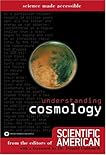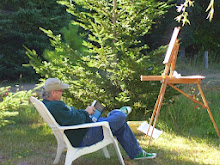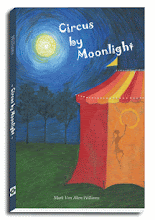Thursday, October 7, 2010
Book Review: The Death of the Adversary by Hans Keilson
This novel is set in Nazi-occupied Europe, although it is never mentioned. There is no guessing here. The adversary is the Führer (referred to as “my enemy”) and the word Nazi is never used. All of this creates an atmosphere where the protagonist fails to come to grips with the reality of the ascendance of National Socialism and the relationship between subject matter and context. Written as memoir, we see how a person who is just as caught up in the culture of his homeland as those who seek to make him an enemy, can only see himself with detachment as a way to protectively shield himself from certain truths, not only about himself but about the horror in the making. This dichotomy is never clearer than when the protagonist (unknown to be a Jew) is sitting with the friends (Nazi thugs) of a girl he has a crush on and them talking about an assignment to desecrate a Jewish cemetery. This is as haunting a scene as you will ever come across in fiction. The prose is astonishing: part philosophy, part psychology, and part poetry—combined to point out the failure of coming to grips with reality. Because of the anonymous nature of the people and places, I was able to transpose this story to a new time, here in America, where the hatred toward Muslims could have the same effect on a young Muslim man who also grew up an American. Certainly a masterpiece!
Tuesday, September 28, 2010
Book Review: Ours--A Russian Family Album, by Sergei Dovlatov
Mark Twain once said, “The quality of humor is the commonest thing in the world. I mean the perceptive quality of humor. In this sense every man in the world is a humorist. The creative quality of humor - the ability to throw a humorous cast over a set of circumstances that before had seemed colorless is, of course, a different thing.” The Russian émigré, Sergei Dovlatov, traces four generations of his family’s life with the circumspect of the truly creative humorist. Through the likes of Uncle Aron, Cousin Boris, Grandpa Isaak, and a terrier named Glasha, we discover the amusing, comical, incongruous, and absurdity that goes hand in glove with the very course of Soviet history. The chaos of the past is remembered and intermingled with a sense of recovery. Even though each life is unique, all lives are familiar to us. So with Cousin Boris, the boy who started with such promise, and was always held up as an example to Sergei (yet somehow kept ending up in prison), we get this—“ I finally understood the ruling trait in my cousin’s character: he was a natural-born existentialist. He could act only in extreme situations: build a career only in prison, fight for life only on the edge of the abyss.” And with Glasha, the terrier—“She was surrounded by esoteric poets, Suprematist painters, composers of atonal music, and sculptors of non-representational constructions. All of them were indefatigable critics of the regime, especially when in their cups. With friends like that, she could hardly have turned out politically loyal. Actually, she herself behaved no better. To be specific, she barked at policemen and generally hated all uniforms, whether on soldiers, sailors, or ticket collectors. Along with this, her displeasure was aroused by red banners and billboards bearing revolutionary slogans, and to top it off, she liked to relieve herself behind a certain building, at the base of a four-meter-tall portrait of Brezhnev.”
The Education Problem in America
When considering the appalling state of education in America, we need to approach the problem and the challenge in an imaginative and innovative way. The old strategy no longer works. So please stop thinking about better unions and throwing huge sums of money at antiquated systems. As odd as this concept may seem to many people, entrenched in their particular paradigms, breakthrough ideas are the answer. Then, and more importantly, we need to take action on these ideas.
First we need to identify what our challenges are (poverty, teacher training, etc.), and then to recognize our goals. This can start with our dissatisfaction—then move to our desires.
I know most of you hate this part, simply because we are used to thinking that “studying something” usually means just putting something off. But it is crucial to access and review all the data we have. You can not innovate without having an objective beginning point.
Once we begin to understand what the problems are, we can then understand the challenges inherent in them. This will help us to focus on what the REAL problems are. We want to come up with the right answers to the right problems.
We must be vigilant about deferring judgment about new ideas. This is where being stuck in old paradigms keeps us from proper exploration. To often these ideas are labeled as wild, outrageous, and out-of-the-box. Making creative connections, taking risks, and trying new associations will lead to potentially innovative scenarios.
Finally, we must generate a barometer needed to analyze and critique these ideas for change, in order to find out which of these are the best ideas.
This country was based and developed on the premise and fruition of great ideas and the action taken to realize them.
Lets do what we’re good at.
First we need to identify what our challenges are (poverty, teacher training, etc.), and then to recognize our goals. This can start with our dissatisfaction—then move to our desires.
I know most of you hate this part, simply because we are used to thinking that “studying something” usually means just putting something off. But it is crucial to access and review all the data we have. You can not innovate without having an objective beginning point.
Once we begin to understand what the problems are, we can then understand the challenges inherent in them. This will help us to focus on what the REAL problems are. We want to come up with the right answers to the right problems.
We must be vigilant about deferring judgment about new ideas. This is where being stuck in old paradigms keeps us from proper exploration. To often these ideas are labeled as wild, outrageous, and out-of-the-box. Making creative connections, taking risks, and trying new associations will lead to potentially innovative scenarios.
Finally, we must generate a barometer needed to analyze and critique these ideas for change, in order to find out which of these are the best ideas.
This country was based and developed on the premise and fruition of great ideas and the action taken to realize them.
Lets do what we’re good at.
Thursday, September 23, 2010
Book Review: Mona And Other Tales, by Reinaldo Arenas
 Mona and Other Tales by Reinaldo Arenas
Mona and Other Tales by Reinaldo ArenasMy rating: 2 of 5 stars
This is a work of stories and other pieces of short fiction, much of which appeared to be experimental, or so it seemed to me because it resembled a bad nightmare. I’m not fond of reading ten or twenty pages and when I’m done I just shake my head and say, “What the F***?” In all fairness though, I did find one story, “Mona,” to be very engaging and thoroughly kept my disposition to incredulity aux abois. I know that Arenas is supposed to be one of the Latin American greats (and they made a movie about his life), but I guess I’ll leave the experts to their precincts, and go search out my copy Ring Lardner short stories.
View all my reviews
Monday, September 20, 2010
Book Review: The Engagement, by Georges Simenon
 The Engagement by Georges Simenon
The Engagement by Georges SimenonMy rating: 4 of 5 stars
This is one Simenon’s more compelling psychological novels (1933). In it we follow Mr. Hire, a solitary man with a dubious past, who is framed for a murder he did not commit. Mr. Hire’s bleak existence is seen only through the author’s juxtaposition of character, which slowly emerges, against the settings in which he navigates his daily routine (his commute, his business, and his various other habits). He is illusive and remains isolated as this trap conspires around him, and a constantly heightened tension creates an oppressive environment. Part psychology, part thriller, and definitely part eerie. This one is a must read for Simenon neophytes or any one into books with plenty of atmosphere, character, intensity, humor, and an understanding of the afflictive mob.
View all my reviews
Sunday, September 19, 2010
To Cry for the Moon
from Circus by Moonlight
so jesus said to be like doves
and you squated to drop an egg
legs unstable, not sure from which
orifice it would leap out
developing perseverance, i saw
this on your two minds attempting
to evoke the inexpressible
symbols (harps, crowns, and gold)
so jesus said to be like doves
and you squated to drop an egg
legs unstable, not sure from which
orifice it would leap out
developing perseverance, i saw
this on your two minds attempting
to evoke the inexpressible
symbols (harps, crowns, and gold)
Friday, September 17, 2010
Book Review: Understanding Cosmology, by the Editors of Scientific American
 Understanding Cosmology by Scientific American
Understanding Cosmology by Scientific AmericanMy rating: 3 of 5 stars
I got bumped from the Russian Soyuz. They overbooked, I guess. Anyway, $40 million was a little steep, I think. So before I make that mistake again, and book a flight with Boeing-Space Adventures, I thought I’d check out what all the hubbub was about. Actually, I was interested in the idea of whether today’s Cosmologists were nothing more than modern day alchemists. Also, it would be interesting to see if there was any theology threads weaved through this tapestry of science. “Understanding Cosmology,” in the most pedestrian language scientists are capable of (many times completely incomprehensible) attempts to bring the reader closer to the truth of how the universe formed, evolved and developed, and what it means to us. During the parts that I could understand, I found out that the Big Bang Theory is old news. There is so much more that they know now, like what happened before the Big Bang. WHAT? Yeah--before. What you come away with is that there are whole new worlds of thought, which are now unimagined, and will eventually become commonplace theories in the future. Oh, and by the way, it turns out that the Cosmologists are in fact closet alchemists—the big question for them being: is if there could be a theory of everything so simple and so elegant that its basic concepts could be understood by a child.
View all my reviews
Subscribe to:
Posts (Atom)






